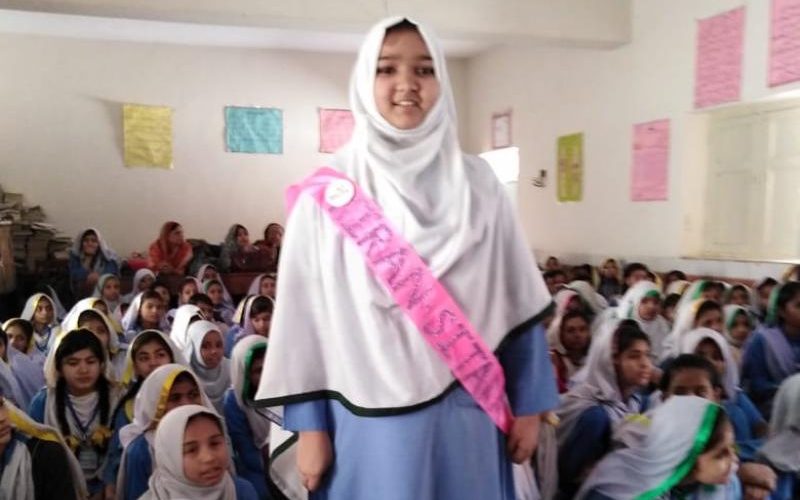
Aqsa is studying at the Government Girls High School in Badin. She became a part of the Interactive Research Development’s (IRD) Kiran Sitara Program in 2019. Aqsa is one of a thousand trained adolescent girls – Kiran Sitaras – in Badin who have continued to support their communities during the Covid-19 pandemic. The Kiran Sitara cohort in Badin has been engaged in door-to-door visits to help understand the health and socioeconomic needs of community members and has facilitated healthcare access for the most vulnerable populations within their communities.
Through the work of the Kiran Sitaras, people from Badin’s most marginalized communities are not only educated about healthy behaviors, but are also facilitated in getting care and treatment that they need, at the Indus Health Network’s primary care clinics in the area.
Kiran Sitaras’ schools have been closed since March 2020, however they have maintained efforts to help their communities. To respond to the unprecedented economic pressure created by the pandemic, Kiran Sitaras, like Aqsa, have been helping the poorest in the district of Badin access social support services, while spreading awareness of the importance of using masks and maintaining proper hygiene to curb infection.
With the closure of institutions and restrictions on movement resulting from the lockdown, Kiran Sitaras in Badin as well as Rahim Yar Khan have helped program teams continue to access the most vulnerable populations – who have been the most negatively impacted by the pandemic. We are so proud of the effort, empathy, and hard work of our Kiran Sitaras – our hope for a better tomorrow starts with young women like Aqsa!
Courtesy: Zainab Tariq, Community Engagement Centre




